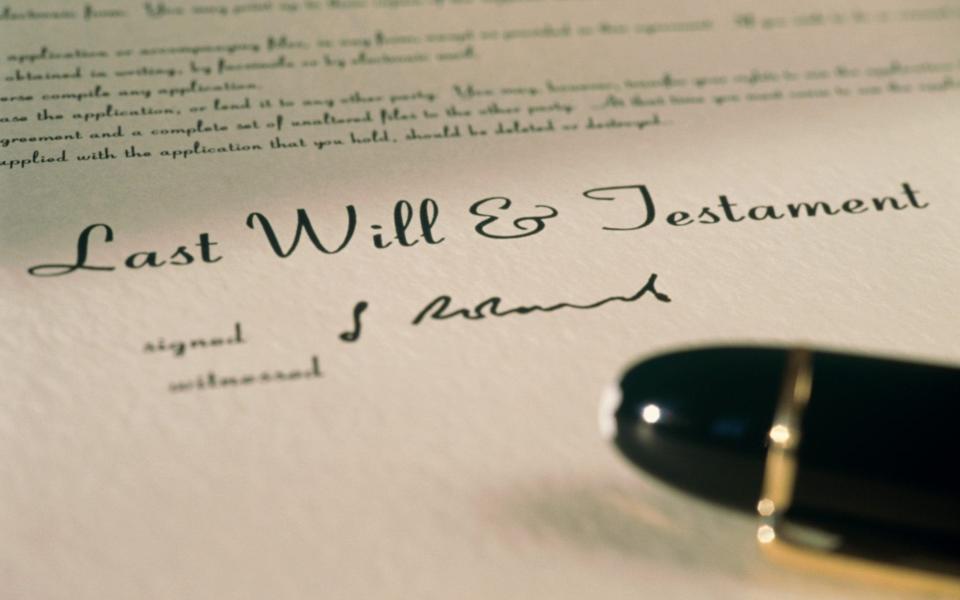The best way to invest an inheritance: stocks, pension or paying off the mortgage?

Receiving an inheritance can be a pivotal moment in life and it is common to feel pressure to do the “right” thing with the money. Gaining a lump sum can be a good trigger to reorder your finances for the future but some routes may prove more fruitful than others.
The best use of your money will depend on your age and circumstances. Telegraph Money examines three common scenarios below.
When you’re young
Younger inheritors could benefit from holding on to smaller sums to give them more flexibility in the future, said Amy Pethers from wealth manager Brewin Dolphin.
If they know that they will need access to the cash in the short term, for example less than three years, it could be prudent to keep it in cash, perhaps in Premium Bonds or an easy-access savings account.
If they think they won't need it for more than five years they should consider investing tax-efficiently in shares. A sum of £10,000 invested in a stocks and shares Isa would be worth £16,289 after a decade if it achieved 5pc annual growth, Brewin Dolphin said.
Those who receive larger sums could also benefit from an Isa. The inheritor could move a sum equal to their full Isa allowance, currently £20,000 a year, to a stocks and shares Isa each year until it is eventually all within this tax-efficient wrapper.
If they invested £350,000, it would be worth £570,113 after 10 years based on 5pc annual investment growth of £220,113 after fees, Ms Pethers said.
In addition to a taxable investment portfolio and Isas, they could benefit from making additional pension contributions.
Pension contributions receive “top-ups” from HMRC in the form of tax relief. This means that money they would typically pay in tax goes into the pension instead. Basic-rate taxpayers receive an extra 20pc (of the gross sum) in additional contributions, while higher-rate and additional-rate taxpayers receive 40pc and 45pc respectively.
This money won’t be accessible until at least the age of 57, however, so a pension is far less flexible than an Isa or taxable investment account and may not be the best option for younger savers.
Ms Pethers added: “They should also work out how much they want to keep as an emergency cash fund. We normally recommend about six months’ essential expenditure.”
In middle age
As with younger inheritors, those in middle age could use a smaller inheritance to top up an emergency fund or invest through an Isa. If they have a mortgage and children, their outgoings are likely to be reasonably high, especially if their children are in private education.
Larger inheritances could help with school fees. The age of their children will determine whether the money should be invested or left in cash. For example, they could keep the next three to five years of school fees in cash and then draw from the investment portfolio each year thereafter to cover the fees.
Overpaying on a mortgage may be tempting in middle age, but investing the money would probably generate more than the mortgage savings in the long run. This is true whether smaller or larger sums are involved.
If a couple have 20 years left on their £500,000 mortgage and make a £200,000 overpayment, at the average two-year fixed mortgage rate of 2.34pc this would cut monthly costs by £1,044. Over the lifetime of the mortgage the saving in interest payments would be £50,628.
However, if the £200,000 were invested instead, it could turn into £530,660 over 20 years, assuming a return of 5pc, which is far more than the interest saved on the mortgage.
If the inheritor decides to invest and has already used their £20,000 Isa allowance, they could add more to their pension instead. If they invested £40,000 into their pension, the maximum amount on which tax relief is paid, it could grow to £65,155 over a decade, based on annual growth of 5pc.
Approaching retirement
At this age the inheritor should take into account the lifetime allowance on pension savings of £1,073,100 before they put their windfall money into their pension. The lifetime allowance is the maximum that a saver's pension can be worth before the full tax benefits are lost.
If a saver already has sufficient money for retirement and wants to pass on the money now, they may want to consider a "deed of variation", which would allow them to pass the inheritance to their children or grandchildren instead, Ms Pethers said.
Depending on their age, they may also need to consider inheritance tax if they decide to keep the inheritance but plan to give some of it away in future. Everyone's estate is taxed at a rate of 40pc above a limit £325,000.
Gifts are subject to the "seven-year rule", whereby a gift made by a parent or grandparent will be free of inheritance tax if it is made seven years or more before their death.
Read more: How much inheritance tax will I pay – and how can I reduce it?

 Yahoo Finance
Yahoo Finance 